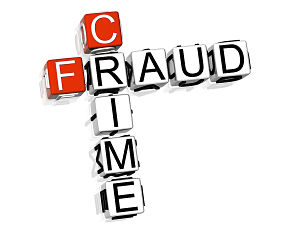Should you be concerned about possible fraud in your business? You bet. Here are some things to pay attention to when it comes to business fraud prevention.
You may think that because your agency is a small business that you aren’t susceptible to employee theft and fraud. In our work with agencies, the biggest problem is the lack of owner understanding about financial process and how reports and statements are constructed. If you don’t have a good understanding you are a prime candidate for being bilked out of tens of thousands of dollars. At the low end.
For smaller businesses especially, the burden of fraud can be very costly. Statistics show that the median loss for a small business is well over $200,000. Making business fraud prevention a priority will help ensure that you do not become a victim. With a little bit of effort, you can effectively reduce the likelihood of fraud in your business.
Sadly, we could tell you too many stories of hard working owners being defrauded by very clever thieves. And those thieves are usually employees. The worst case I was involved in finally discovered the bookkeeper had slipped more than $400,000 out of the company coffers over a five-year period. He had a wonderful home and all the trimmings, paid for by the agency.
The bad news: local authorities are hardly interested in business fraud cases that are not in the millions. It is difficult to prosecute the thief, and he goes on to his next victim. Often, the only way to collect is to report the thief to the IRS for non-payment of back taxes on the money that was stolen. The FBI tells us that the funds are often fully recovered.
Here are some small business fraud prevention steps you need to implement in your agency ASAP to protect yourself.
Do your homework when hiring employees
Hiring competent and trustworthy employees will make your business less susceptible to fraud. Conduct pre-employment background checks that look into past employment, education, references, and criminal history. And, you want to know how your potential employee handle their money. You’d be amazed at how many agencies don’t even bother checking references, let alone doing a credit check.
Remember to always get the written consent of candidates before doing any pre-employment research. If you don’t have a consent statement built into your employment application form, consider adding one.
Are your internal controls adequate?
Do you have checks and balances in place? Mitigate the risk of fraudulent activities by taking appropriate measures. As an example, research has shown that the most common small business fraud scheme is check tampering. This frequently occurs when an employee has access to the company checkbook and is also responsible for recording payments and reconciling the bank statements.
In a small marcom agency, your greatest exposure may be in allowing many people to “buy” goods and services from suppliers. We have stumbled across several incidents where purchases were made from suppliers that didn’t even exist. Even with a purchase order system and one or two people authorized to spend the company’s money, it is easy to set up a false supplier, approve the purchase and the purchase amount. When the check is cut and mailed it simply ends up in the employee’s bank account. With on-line payments, it’s entirely too easy to pay to another account seamlessly. It happens with purchased goods and services all too often.
By looking at critical functions in your business and identifying where fraud could occur, you will be able to implement controls that can help mitigate your risk.
Require employees to take vacations
It may sound odd, but employees that do not take vacations or time off should be a red flag. Why? They may not want anyone else to perform their duties while they are away for fear of uncovering something unusual. Require your employees to take time off. In their absence, make sure that someone is either backing up or performing their job functions.
Heighten employee awareness with appropriate fraud training
If your employees understand the basic red flags of business fraud prevention, they can help you identify and uncover potential problems. Research has shown that companies most frequently detect fraud by acting on tips originating from employees. By educating and heightening the awareness of fraud with your employees, you will establish open lines of communication and increase their ability to identify any issues.
Take these business fraud prevention steps seriously. No one wants to think that their employees might be putting them at risk. But with the recessions taking its toll, the numbers for employee fraud are on the rise. Do everything you can to reduce your exposure. Sadly, most of you won’t — and some of you are going to pay dearly for that choice.






